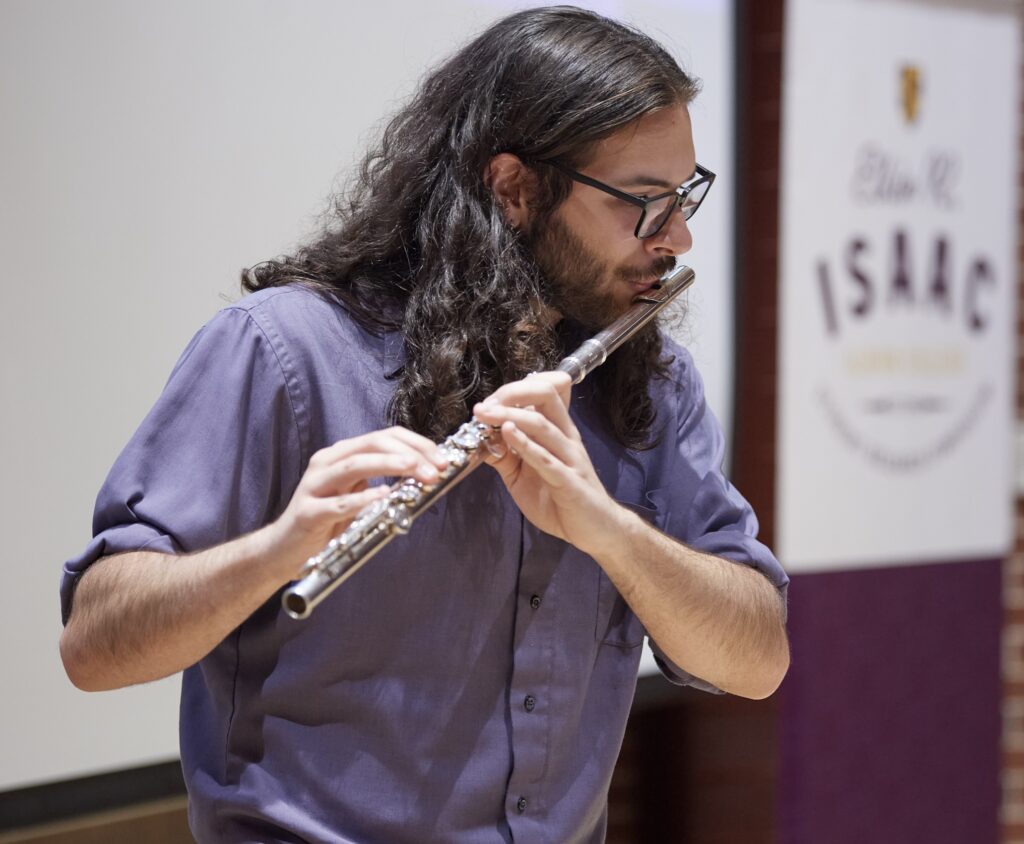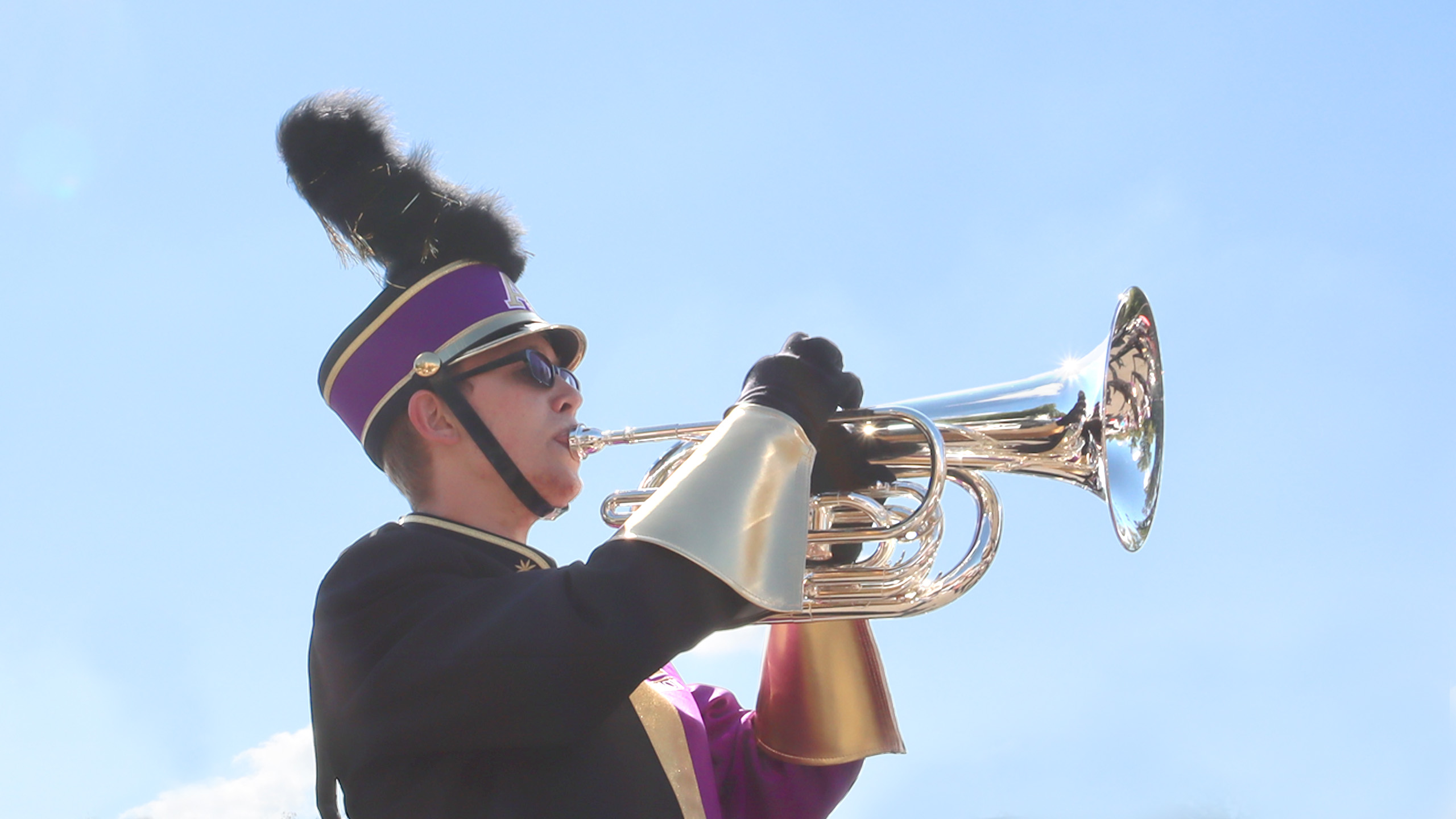How one Briton composed his musical path
August 9, 2024
As college sophomores often do, Luke Rivard ’24 made the dismaying discovery that he’d chosen the wrong major. “I was on track with music education, but I realized that teaching in a school system was not what I wanted to do,” he recalled.
Instead, Rivard felt compelled to study music composition, an activity he explored briefly in high school, but he realized this would be a challenging course shift. He had limited instruction on theory and composition in high school. “What I had done was simple and poorly written, really not good at all,” Rivard said.

Albion’s small music faculty not having a composition specialist also complicated matters. Yet two years later, thanks to the support of Albion’s entire Music Department, Rivard is poised for the next step in his professional career. This fall, Rivard will join a graduate program in composition at the University of Nebraska-Lincoln, alma mater of music professor and Honors Program Director Lia Jensen-Abbott.
“Pursuing composition would not have been possible without constant support from my faculty and staff mentors,” Rivard said. “They recognized my potential and advocated for me. I am grateful for the dedicated members of the Music Department who molded me into a capable musician.”
Since 2022, Rivard has studied virtually with New York-based composer Philip Wharton, hired as an Albion adjunct instructor for this specific purpose. Other Music Department faculty, staff, and students have played a part, giving six performances of Rivard’s compositions: a voice/piano song cycle, wind quartet, handbell choir piece, a fully orchestrated flute concerto, an original piece for orchestra, and an orchestrated version of Scott Joplin’s “Silver Swan Rag.”
“I remember the first time I heard my song cycle being sung. I couldn’t stop smiling (despite the text setting being an Edgar Allen Poe poem) because the music I wrote came to life,” Rivard said. “Hearing any of my works is a reminder that something I created connects performers and listeners in a way only music can.”
The opportunity to work with so many of Albion’s ensembles and musicians greatly impacted Rivard’s approach to composition. “I focus on creating interest for potential audiences. I have noticed that a lot of modern classical music fails to reach everyday audiences because it is either far too complex or too repetitive,” he explained. “My goal with composition is to find the middle ground between the sound in my head and what will be perceived. Connection with an audience is the ultimate goal.”
“I like the process of finding starting material for new pieces. Sometimes it is a weeks-long process and sometimes it flows right out of me,” he continued. “I also have fun picking apart all the components of those themes to develop them and keep them interesting.”
Albion may have played a pivotal role, but Rivard does note one other critical piece of his success. “I eat chocolate when I feel uninspired,” he concluded. “That often helps.”
Rivard graduated from Albion College in May with a Bachelor’s of Arts in Music Performance. He has received many awards. These include the Helen Sue Koether Memorial Music Scholarship, the Dr. Philip Mason Orchestra Prize (2x), the Donald S. White Music Theory Award (2x), the Jacqueline Maag Prize in Music History, the Anthony Taffs Award in Music Composition (3x), the Louis Upton Rowland and Ruth Carter Rowland Endowed Scholarship, a Foundation for Undergraduate Research and Creative Activity Student Research Grant, and an Outstanding Honors Thesis Award. He is also a member of Mortar Board and Pi Kappa Lambda.
